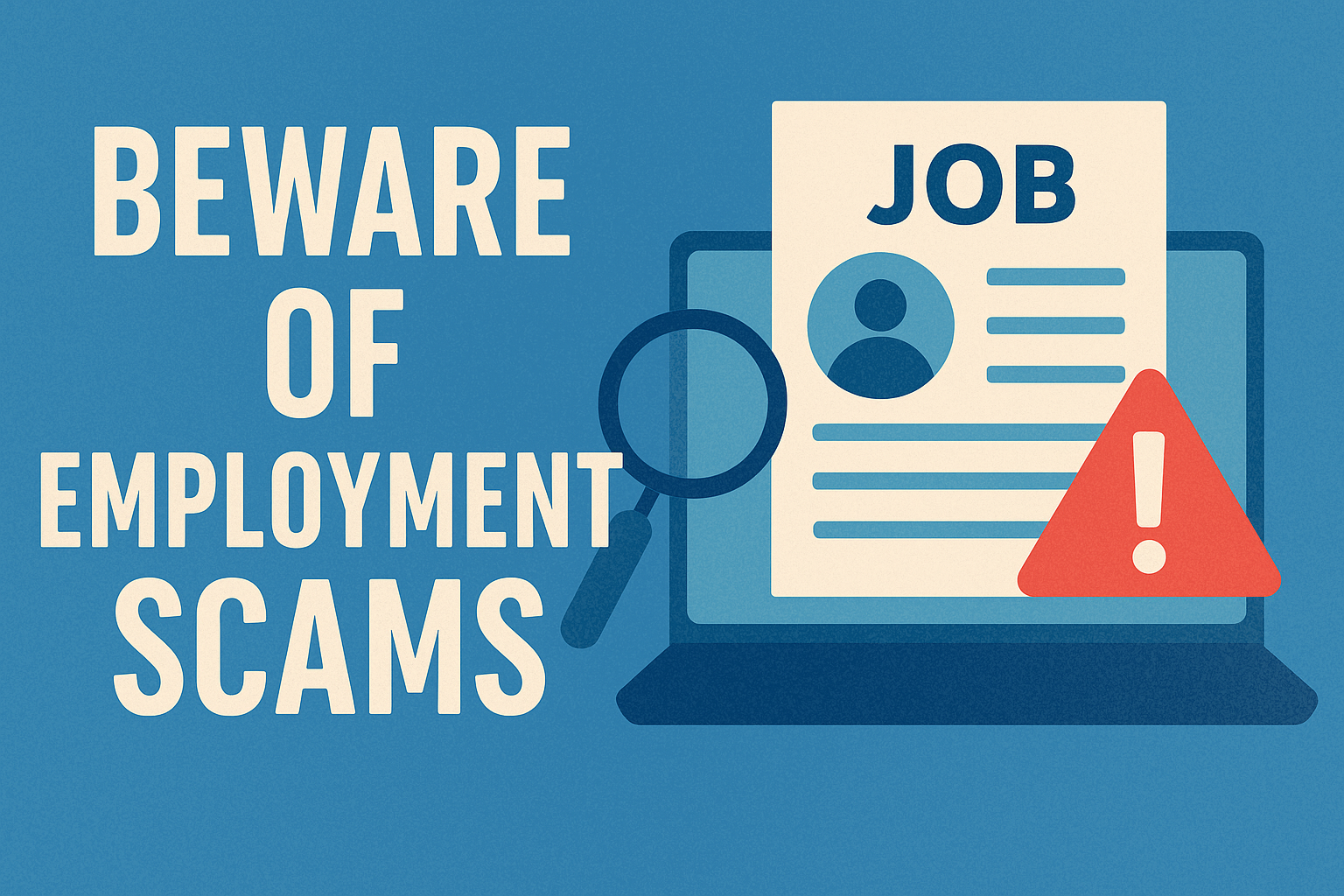Looking for extra income or a new opportunity online can seem convenient, but scammers have turned fake job postings into one of their most effective traps. Employment scams often appear on job boards, social media, or even in your email inbox, promising easy work with high pay and flexible hours.
The catch? These “employers” typically ask for personal details—like your Social Security number, bank account information, or copies of identification—early in the process. Others may ask you to purchase training materials or pay upfront for equipment. Once you’ve sent money or information, the scammers disappear, leaving you at risk of financial loss or identity theft.
Some scams are even more elaborate, offering remote work-from-home positions where they “accidentally” overpay you with a fake check, then ask you to refund the difference. By the time the bank flags the check as fraudulent, your money is already gone.
To stay safe, research any company before applying. Check their official website and confirm that the job is listed there. Be wary of vague job descriptions, poor grammar, or offers that sound too good to be true. A legitimate employer will never require payment upfront for training or equipment, and they’ll conduct interviews before requesting sensitive information.
If you suspect a job offer is fake, stop communication immediately and report it to the Federal Trade Commission (FTC). Staying cautious can help you focus on genuine opportunities while avoiding the growing risk of employment scams.







